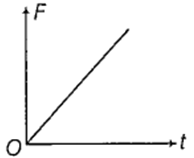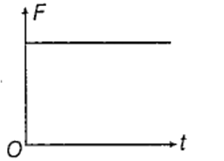 Multiple Choice Questions
Multiple Choice QuestionsThe dimensions of in the equation where, p is pressure, x is distance and and t is time, are
[M2LT-3]
[MT-2]
[LT-3]
[ML3T-1]
Three vectors satisfy the relation A . B = 0 and A . C = 0, then A is parallel to
C
B
B × C
B . C
A student is standing at a distance of 50 metre from the bus. As soon as the bus begins its motion with an acceleration of 1 ms-2, the student starts running towards the bus with a uniform velocity u. Assuming the motion to be along a straight road, the minimum value of u, so that the student is able to catch the bus is
8 ms-1
5 ms-1
12 ms-1
10 ms-1
For a given velocity, a projectile has the same range R for two angles of projection if t1 and t2 are the time of flight in the two cases, then
t1t2 ∝ R
t1t2 ∝ R2
Weight of a body ofmass m decreases by 1 % when it is raised to height h above the earth's surface. If the body is taken to a depth h in a mine, change in its weight is
0.5 % decrease
2 % decrease
0.5 % decrease
1 % increase
Which of the following sets of concurrent forces may be in equilibrium ?
F1 = 3 N, F2 = 5 N, F3 = 1 N
F1 = 3 N, F2 = 5 N, F3 = 9 N
F1 = 3 N, F2 = 5 N, F3 = 6 N
F1 = 3 N, F2 = 2 N, F3 = 15 N
C.
F1 = 3 N, F2 = 5 N, F3 = 6 N
For the equilibrium offorces, resultant force must be zero. Hence, sum of two smaller forces must be greater than third (large) force so that, closed triangle can be formed.
Hence, F1 (3 N) + F2 (5 N) > F3 (6 N)
The displacement time graph of a particle executing SHM is as shown in the figure.

The corresponding force time graph of the particle is




An ideal monoatomic gas at 27°C is compressed adiabatically to 8/27 times of its present volume. The increase in temperature of the gas is
375°C
402°C
175°C
475°C
A sample of ideal monoatomic gas is taken round the cycle ABCA as shown in the figure. The work done during the cycle is

3 pV
zero
9 pV
6 pV
